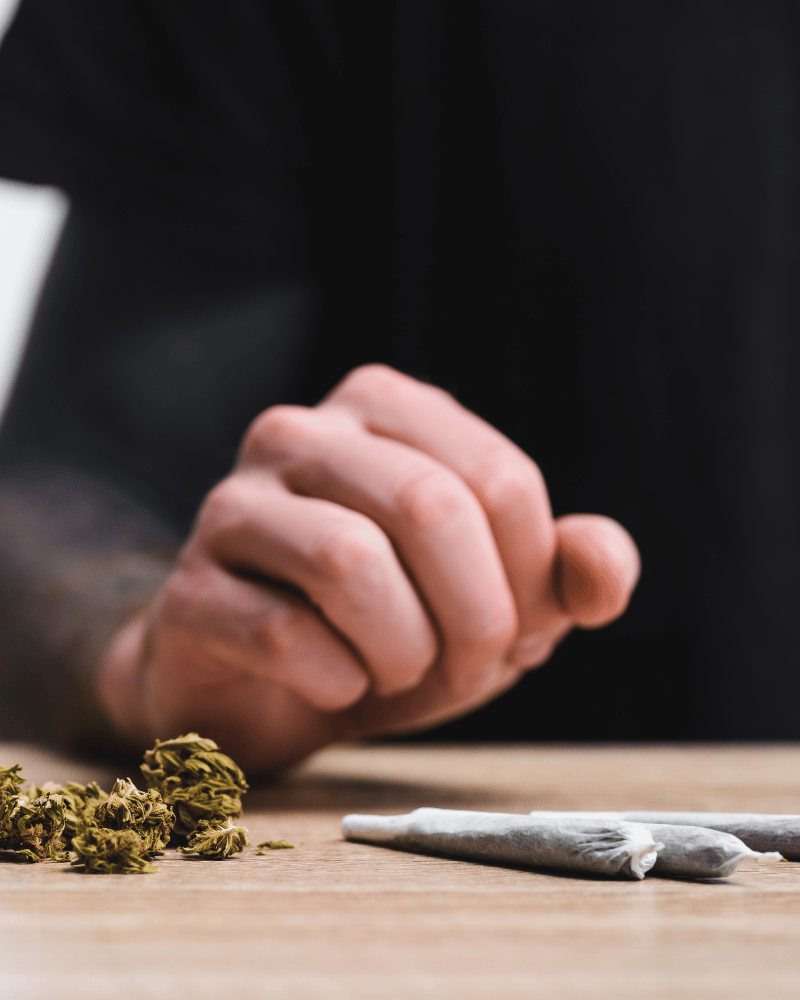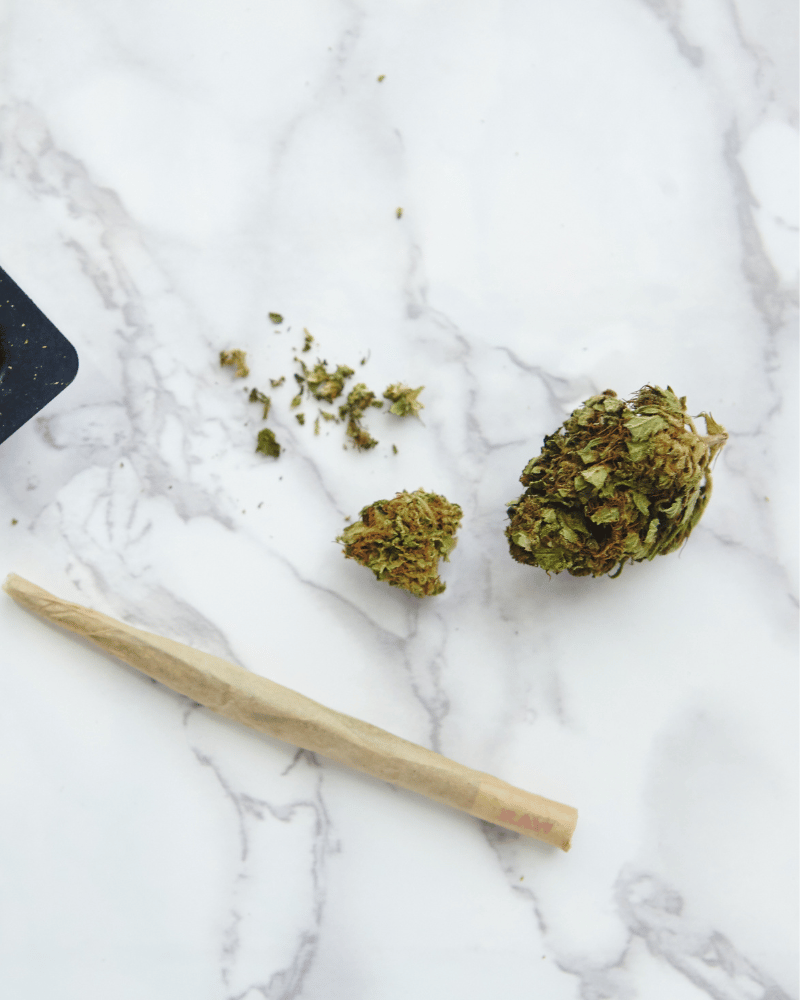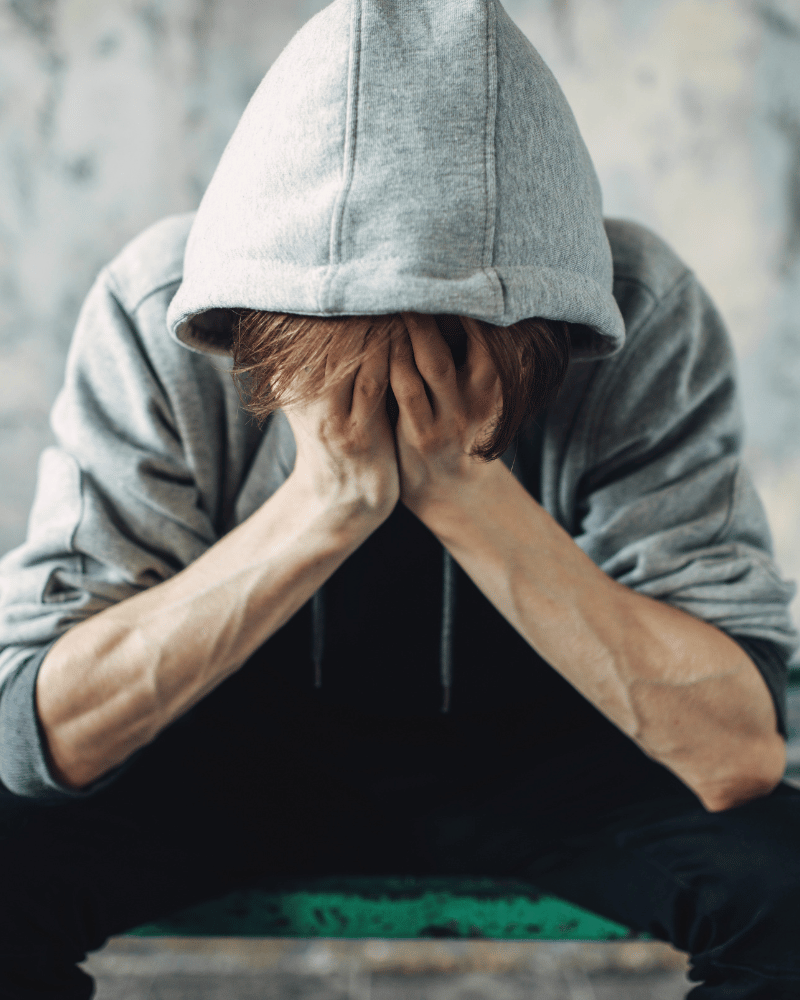HHC (hexahydrocannabinol) is a substance that can produce similar effects to THC, but is often treated differently in terms of handling and legal regulations. Despite the popularity of HHC, the topic of withdrawal and the associated challenges are rarely in the spotlight. On this page we offer you comprehensive information about the symptoms, duration and personal experiences of HHC withdrawal. Our aim is to help you understand the signs, what to expect during withdrawal and where you can find support. Whether you are affected yourself or supporting someone: Here you'll find helpful resources and learn how to best approach the road to recovery.
Symptoms of HHC withdrawal
Withdrawal from HHC can cause similar symptoms to other cannabinoids. The intensity and type of symptoms vary depending on the duration and intensity of use. The most common include:
- Restlessness and nervousness
- Sleep disorders, such as problems falling asleep and staying asleep
- Mood swings, including depression or anxiety
- Physical complaints such as headaches and sweating
- Loss of appetite
- Concentration problems
These symptoms are usually temporary and subside after a few days to weeks. Professional support can make the process easier and is often essential for successful coping.


Duration of HHC withdrawal
The duration of HHC withdrawal can vary greatly from individual to individual, but typically depends on the frequency and amount of HHC consumed. In general, the first symptoms can begin within 24 to 48 hours after the last use and progress as follows:
- Acute phase: this phase usually lasts from a few days to a week. During this time, withdrawal symptoms are often the most severe.
- Decay phase: After the acute phase, the symptoms slowly begin to subside. This phase can last from one week to several weeks.
It is important to emphasize that the overall duration of withdrawal is influenced by personal physiology, support from professionals and the availability of resources. Some individuals may also experience a prolonged period of minor symptoms known as post-acute withdrawal syndrome (PAWS).
Support with HHC withdrawal: medical and psychological
The path out of HHC withdrawal does not have to be walked alone. Here are some effective support options:
Medical support
- Medical support: Doctors can monitor withdrawal and intervene with medication if physical symptoms are severe.
- Detox programs: Specialized clinics offer programs for safe and supervised detoxification.
Psychological support
- Individual therapy: Therapists help to understand the causes of HHC use and prevent relapse.
- Group therapy and support groups: Sharing with other sufferers provides mutual encouragement and support.
Online resources
- Digital counseling services: Online counseling and telephone hotlines offer quick help and pathways to further support.
- Informative platforms: Websites and forums provide access to important information and community.
No matter what form of support you choose, the key is to develop a plan tailored to your needs.
Tips against HHC abuse
The best way to address the challenges of HHC withdrawal is to avoid abuse in the first place. Here are some preventative measures that can help:
- Education is key: Inform yourself and others about the effects and risks of HHC. Knowledge is a strong basis for responsible action.
- Set clear boundaries: Determine for yourself when and how much HHC is appropriate. Setting clear rules can help to avoid overconsumption.
- Watch out for warning signs: Recognize changes in your or your friends' behaviour that could indicate possible abuse at an early stage.
- Seek support: Do not hesitate to seek professional help or counseling if you have uncertainties or questions about the use of HHC.
- Strengthen your network: A strong social environment can support and protect you. Share your concerns and goals with trusted people.
By following these tips, you can minimize the likelihood of HHC abuse and contribute to more responsible use.

AK-47 Strain mounting instructions
Growing the AK-47 strain requires some expertise, but with the right preparation and care, even a beginner can be successful. Here are some important steps for growing the AK-47 strain:
- Select genetics: Make sure you get high-quality AK-47 seeds or clones from a trusted source to ensure a healthy and robust plant.
- Choose growing medium: AK-47 thrives well in both soil and hydroponics. Choose the medium that best suits your preferences and level of experience.
- Light and temperature: AK-47 prefers a warm, Mediterranean climate with plenty of sunlight. Make sure your plants receive at least 6 hours of direct sunlight per day or use indoor lighting with an 18/6 light cycle during the growth phase and a 12/12 light cycle during the flowering phase.
- Watering and fertilizing: Keep the soil evenly moist, but not too wet, and avoid stagnant water, which can lead to root rot. Use a high-quality fertilizer rich in nitrogen, phosphorus and potassium during the growth and flowering phase.
- Pruning and training: Regular pruning and training can help maximize growth and yield. Regularly remove dead leaves and prune the plants to improve air circulation and prevent pests from entering.
- Harvesting and drying: The AK-47 strain is usually ready to harvest after 8-9 weeks of flowering. Pay attention to the trichomes to determine the optimal harvest time. Dry the harvest slowly and evenly to preserve the flavor and potency.
With these basic steps and a little patience, you can successfully grow your own AK-47 strain and achieve an abundant harvest of high-quality cannabis.
AK-47 Strain: our bestsellers
Experience the legendary AK-47 Strain and discover why it is one of our customer favorites!
- 🌿HHC AK-47 20%Immerse yourself in the powerful effects of the AK-47 strain with our high-quality HHC product.
- 🌱Cannabis Seeds AK-47 auto. 3 piecesWant to grow your own plant? Get our AK-47 auto seeds and start your own cannabis adventure.
💰 Get our bestsellers now while stocks last! Make the AK-47 strain your next cannabis experience!
FAQs
The first signs of HHC withdrawal are often similar to those of THC withdrawal and include physical and psychological symptoms. These include restlessness, irritability, sleep problems, depression, anxiety and physical symptoms such as headaches, sweating and loss of appetite. These signs can begin as soon as the effects of the HHC wear off and the body begins to adjust to the absence of the substance.
There are different treatment approaches for HHC withdrawal, depending on the severity of the symptoms. Mild cases can often be treated at home with support and simple self-help strategies, while severe cases may require medical monitoring or even inpatient treatment. Treatment options include medical care for symptom control, psychological counseling, behavioral therapies and support through self-help groups.
Yes, in many cases HHC withdrawal can be managed at home, especially if the symptoms are mild and the person has a strong support network. At home strategies such as relaxation techniques, regular exercise, a healthy diet and adequate sleep can be helpful. However, it is important to seek professional medical help if symptoms worsen.
A healthy diet plays a crucial role in HHC withdrawal as it helps the body to recover from the physiological effects of long-term use. Vitamins and minerals can strengthen the immune system and help normalize bodily functions. It is recommended to drink plenty of water and consume foods high in nutrients to provide energy and support the healing process.
The long-term consequences of HHC withdrawal depend on several factors, including the duration and intensity of use. While many people experience full recovery, some may experience long-term psychological problems such as persistent anxiety or mood swings. It is important to continue to seek psychological support after withdrawal to address these potential long-term effects.
Relapse is a common problem, but can be minimized through a combination of continued therapy, participation in support groups and developing strong personal coping strategies. It is also helpful to identify and avoid triggers and maintain a supportive environment that encourages a healthy lifestyle.



